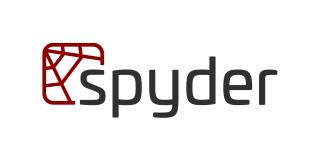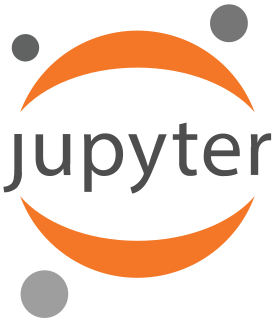Related Research Articles
In computing, a plug-in is a software component that adds a specific feature to an existing computer program. When a program supports plug-ins, it enables customization.

Wolfram Mathematica is a software system with built-in libraries for several areas of technical computing that allow machine learning, statistics, symbolic computation, manipulating matrices, plotting functions and various types of data, implementation of algorithms, creation of user interfaces, and interfacing with programs written in other programming languages. It was conceived by Stephen Wolfram, and is developed by Wolfram Research of Champaign, Illinois. The Wolfram Language is the programming language used in Mathematica.

In academic publishing, a preprint is a version of a scholarly or scientific paper that precedes formal peer review and publication in a peer-reviewed scholarly or scientific journal. The preprint may be available, often as a non-typeset version available free, before or after a paper is published in a journal.

LilyPond is a computer program and file format for music engraving. One of LilyPond's major goals is to produce scores that are engraved with traditional layout rules, reflecting the era when scores were engraved by hand.
COLLADA is an interchange file format for interactive 3D applications. It is managed by the nonprofit technology consortium, the Khronos Group, and has been adopted by ISO as a publicly available specification, ISO/PAS 17506.
This article provides basic comparisons for notable text editors. More feature details for text editors are available from the Category of text editor features and from the individual products' articles. This article may not be up-to-date or necessarily all-inclusive.

FontForge is a FOSS font editor which supports many common font formats. Developed primarily by George Williams until 2012, FontForge is free software and is distributed under a mix of the GNU General Public License Version 3 and the 3-clause BSD license. It is available for operating systems including Linux, Windows and macOS and is localized into 12 languages.
In the macOS, iOS, NeXTSTEP, and GNUstep programming frameworks, property list files are files that store serialized objects. Property list files use the filename extension .plist, and thus are often referred to as p-list files.
AsciiDoc is a human-readable document format, semantically equivalent to DocBook XML, but using plain-text mark-up conventions. AsciiDoc documents can be created using any text editor and read “as-is”, or rendered to HTML or any other format supported by a DocBook tool-chain, i.e. PDF, TeX, Unix manpages, e-books, slide presentations, etc. Common file extensions for AsciiDoc files are txt and adoc.

Pootle is an online translation management tool with a translation interface. It is written in the Python programming language using the Django framework and is free software originally developed and released by Translate.org.za in 2004. It was further developed as part of the WordForge project and the African Network for Localisation and is now maintained by Translate.org.za.

Etherpad is an open-source, web-based collaborative real-time editor, allowing authors to simultaneously edit a text document, and see all of the participants' edits in real-time, with the ability to display each author's text in their own color. There is also a chat box in the sidebar to allow meta communication.

Spyder is an open-source cross-platform integrated development environment (IDE) for scientific programming in the Python language. Spyder integrates with a number of prominent packages in the scientific Python stack, including NumPy, SciPy, Matplotlib, pandas, IPython, SymPy and Cython, as well as other open-source software. It is released under the MIT license.

RStudio is an Integrated Development Environment (IDE) for R, a programming language for statistical computing and graphics. It is available in two formats: RStudio Desktop is a regular desktop application while RStudio Server runs on a remote server and allows accessing RStudio using a web browser.

Plotly is a technical computing company headquartered in Montreal, Quebec, that develops online data analytics and visualization tools. Plotly provides online graphing, analytics, and statistics tools for individuals and collaboration, as well as scientific graphing libraries for Python, R, MATLAB, Perl, Julia, Arduino, and REST.

CoCalc is a web-based cloud computing (SaaS) and course management platform for computational mathematics. Part of the Sage project, it supports editing of Sage worksheets, LaTeX documents and Jupyter notebooks. CoCalc runs an Ubuntu Linux environment that can be interacted with through a terminal, additionally giving access to most of the capabilities of Linux.
Pandoc is a free and open-source document converter, widely used as a writing tool and as a basis for publishing workflows. It was created by John MacFarlane, a philosophy professor at the University of California, Berkeley.

Google Docs is an online word processor included as part of the free, web-based Google Docs Editors suite offered by Google, which also includes Google Sheets, Google Slides, Google Drawings, Google Forms, Google Sites, and Google Keep. Google Docs is accessible via an internet browser as a web-based application and is also available as a mobile app on Android and iOS and as a desktop application on Google's Chrome OS.
A notebook interface is a virtual notebook environment used for literate programming, a method of writing computer programs. Some notebooks are WYSIWYG environments including executable calculations embedded in formatted documents; others separate calculations and text into separate sections.

Project Jupyter is a project and community whose goal is to "develop open-source software, open-standards, and services for interactive computing across dozens of programming languages". It was spun off from IPython in 2014 by Fernando Pérez and Brian Granger. Project Jupyter's name is a reference to the three core programming languages supported by Jupyter, which are Julia, Python and R, and also a homage to Galileo's notebooks recording the discovery of the moons of Jupiter. Project Jupyter has developed and supported the interactive computing products Jupyter Notebook, JupyterHub, and JupyterLab. Jupyter is financially sponsored by NumFOCUS.
References
- 1 2 3 4 Lomas, Natasha (2014-09-22). "Authorea Nabs $610k For Its Bid To Become A 'Google Docs For Scientists'". TechCrunch.
- 1 2 Wolff, Spencer (2014-09-09). "Authoring the Future". Huffington Post.
- 1 2 3 4 5 6 7 8 9 10 Perkel, Jeffrey (2014-10-01). "Scientific writing: the online cooperative". Nature. Nature News. 514 (7520): 127–128. Bibcode:2014Natur.514..127P. doi:10.1038/514127a. PMID 25279924. S2CID 4452280.
- ↑ Nicholson, Josh; Pepe, Alberto; Server, Richard; Sussman, Linda; Inglis, John (2017-06-14). "Authorea and BioRxiv partner to bring preprints into 21st century". www.authorea.com. Authorea.
- ↑ "PREreview — a new resource for the collaborative review of preprints". eLife. 2017-10-25. Retrieved 2019-08-11.
- 1 2 3 Dale, Brady (2014-09-14). "This software for academic paper writing is inspired by Git". Technical.ly.
- ↑ Cantiello, Matteo (2014-09-14). "How to Bring Science Publishing into the 21st Century - A new collaborative tool could revolutionize scientific authorship". blogs.scientificamerican.com.
- 1 2 Stein, Gabe; Mankins, Matt (2013-08-30). "Can The GitHub For Science Convince Researchers To Open-Source Their Data?". FastCompany Labs.
- ↑ Kovalesky, Brian (2014-10-15). "Authorea wants to remake the academic collaboration process with its cloud-based platform for researchers and scholars". Startup Beat.
- ↑ "Authorea Raises $1.5M to Advance Open, Reproducible, Data-Driven Research | Newswire". www.newswire.com. Archived from the original on 2019-03-28.
- ↑ "Authorea buys VC-backed The Winnower - PE Hub". www.pehub.com. Archived from the original on 2017-09-02.
- ↑ "Authorea is acquired by Atypon and joins the Wiley family - Authorea".
- 1 2 3 4 5 Irving, Damien (2014-04-20). "Authorea: the future of scientific writing?". Dr Climate blog.
- 1 2 John, Otander (2013-03-07). "Writing papers with Authorea, batteries included". Astrobiased.
- 1 2 "A Collaborative Approach to Academic Papers: Authorea". Unveiled Web. 2014-01-22. Archived from the original on 2015-03-20. Retrieved 2015-03-12.
- ↑ Turnbull, Connor (2013-05-29). "Authorea: Simple Research Collaboration". AppStorm.
- 1 2 3 4 Graham, Jim (2014-10-02). "New Online Authoring Tools for Collaborative Manuscripts". SciMatic. Archived from the original on 2016-04-04. Retrieved 2015-03-03.
- 1 2 Joshua, Smith (2014-05-15). "Migrating a LaTeX manuscript hosted on GitHub to Authorea". Generic Surname Blog.